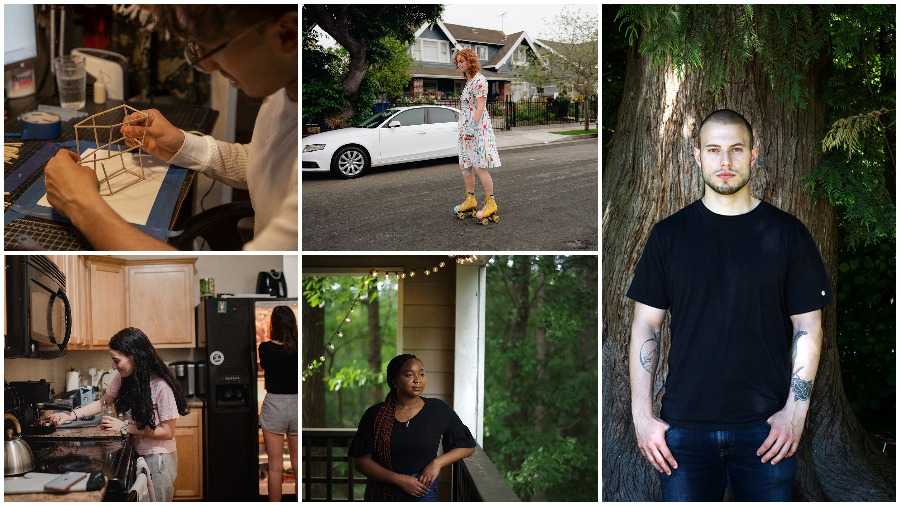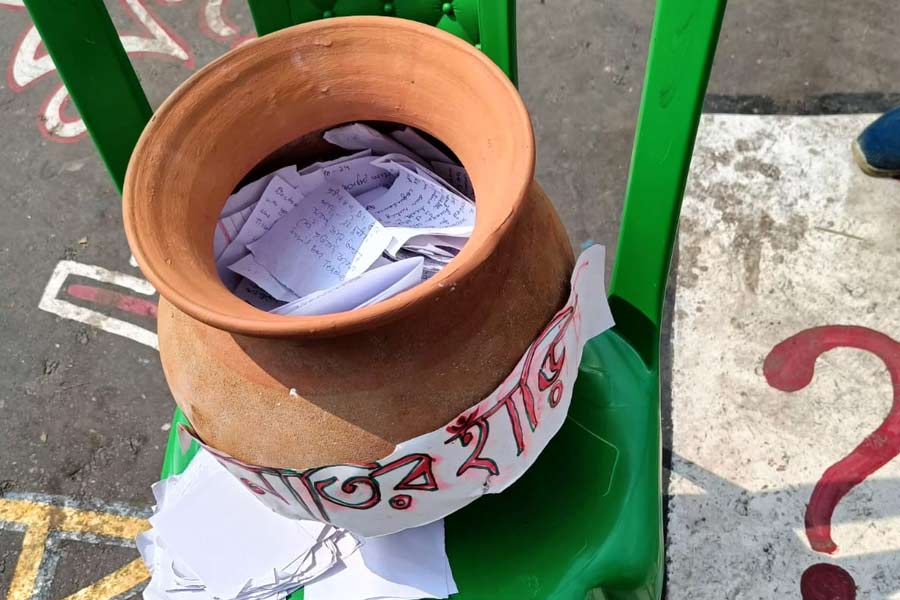It was the year of college without the college experience. No packed stadiums and arenas. No intimate, small-group seminars or serendipitous encounters with strangers. No (or fewer) ill-advised nights of beer pong and partying.
It is not likely, if given the choice, that many college students would opt for the past year of distance, separation and perpetual wariness. Still, perhaps surprisingly, for many students, there was much that was gained as well as much that was lost in their unwanted suspension of campus life during the coronavirus pandemic.
Madison Alvarado, who graduated from Duke University (in Durham, US) this month, could no longer enjoy the camaraderie of painting herself blue and the giddy tumult of Duke basketball, which to her was as much about community as sport. As companies stopped hiring last summer, she snagged a summer internship only at the last minute and was still job-hunting this year.
But she is grateful for an invaluable lesson in dealing with how unpredictable life can be.
“I was the person with a plan,” she said. “A lot of people are following a preset track — premed, financial analyst, PhD. The pandemic put that in stop mode. It’s made me realise that not knowing the next step doesn’t mean my world is going to crumble. I think it made me less scared to face the unknown.”
At the end of this most unusual of academic years, students interviewed at colleges around the country said they would not miss the regimen of virus testing and quarantining, the classes on Zoom, the zero tolerance for straying from prescribed rules, the distance they felt from one another.
“It’s just been a lot of grieving almost — grieving what we could have had,” said Raina Lee, a freshman at the University of North Carolina, US, who started the year in a dormitory but almost immediately had to move to an apartment off campus because of a Covid outbreak. “My life physically became a lot smaller, just this apartment.”
Steven Grullon, in his last year of architecture school at the City College of New York, US, missed being able to go into his studio on campus at any hour of the day or night, the kind of freedom to explore their world and campus that many students used to take for granted.
The architecture building, where he formerly could work and stay over at night when he wanted, was closed for the pandemic. Instead, he often rose at 3am to make drawings in the apartment he shares with his mother and grandmother in the Bronx. He gained in focus but lost in connectedness. He also regrets the job prospect that went away because of the pandemic last summer.
But for many it has also been a time of self-discovery. Some applied themselves to academics in a way they never would have if offered the familiar buffet of campus amusements. Some bonded with a tight group of friends. Many, like Alvarado, found that for the first time in their lives, they had been liberated from their carefully planned lives and their focus on getting the approval of others.
For some, their college or university became a sanctuary, even more of a safe place than their homes. Several students said their families or close relatives had become sick with Covid-19, a fate they escaped by being at school and following strict protocols of social distancing and frequent testing.
Students often created elaborate rules for themselves. Jacqueline Andrews, who just graduated from the
University of Southern California, US, agreed with her seven roommates that significant others had to test negative for the coronavirus within “a couple of days” of entering the premises. Friends could visit, but only if they sat around the fire pit in the back of the house. The housemates were not allowed to ride in cars with people outside their bubble.
Xanthe Soter, a junior at Temple University, US, said she “thrived” academically this year because there were so few distractions and because she was able to manage her time more efficiently. “I had my best semester,” she said. “I didn’t have to worry about the little tidbits of getting up, getting dressed, going in person — it was very draining.”
Soter rented an apartment with three classmates in Philadelphia and said they all had regrets about missing out on the wild side of college life but felt they all gained a lot, too. “I don’t want to say we are adults now, but we definitely have grown up,” she said.
Dominic Lanza, a computer science major at Temple, said he and the five men he roomed with began holding “family dinner night” every week with an intimate circle of friends. “You can’t go out and have fun anymore, but in another way, we all have become a lot stronger friends,” he said. “We all, I think, have been very introspective and reflective on what made college fun, and honestly, now when I get to see my friends — we’re moving into a post-pandemic world — I’m more grateful for those experiences.”
NYTNS











